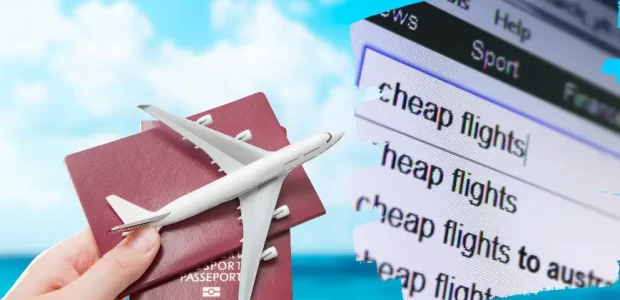
6 Cheaper Ways to Travel: Less Money and Budget Travelling

Budget travel may be thrilling and enjoyable. It all boils down to making informed choices before and throughout your trip. You not only save money but also get to have an amazing time.
Think about taking a trip somewhere new, remaining within your means, and experiencing a little bit of the local way of life. These are six easy and inexpensive methods to accomplish this.
Do you want to discover how to fulfill your desire to travel without going over budget? Let’s check out these tips together!
Key Takeaways
- Choose smaller towns or rural areas to avoid expensive tourist spots.
- Reserve lodging and flights in advance, and be adaptable with your trip dates to take advantage of lower rates.
- Visit during the off-season to avoid crowds and pay less.
- Stay in low-cost lodging options like house sitting, hostels, or Airbnbs.
- Save money by cooking with local products and eating locally by visiting markets and street sellers.
Save Money and Choose Your Destination Wisely
Every time I’m organizing a vacation on a tight budget, I look for destinations with affordable living expenses and favorable currency rates. In this way, I can have more experiences without going over budget and my money goes further.
One of the first things I do is avoid expensive tourist spots and big cities. These places usually have higher prices for hotels, food and activities. Instead, I look for smaller towns or rural areas. These spots often offer unique and authentic experiences at a reduced costs.
I’ve found that choosing multiple budget-friendly destinations can save a lot on transportation. By combining these places into one trip, I get to see different cultures without spending a lot. For example, countries in Southeast Asia, Eastern Europe and Central America are great for this. They’ve a lower cost of living and good exchange rates.
Before I pick my destination, I always check the current exchange rates. This helps me get the best value for my money. Careful planning like this helps me avoid extra costs and make the most out of my travel budget.
Book Early and Be Flexible: Find Cheap Flights
I always book my flights and accommodations earlier to get the best of their deals. Early planning helps me find cheaper prices and more choices. Below’s what I do:
- Start Early: I start planning and booking my trips 2-10 months before. This usually gives me the best prices for flights and hotels.
- Use Flight Search Engines: I use flight search engines to compare prices from different airlines. These tools show me the best deals and the cheapest days to fly.
- Be Flexible with Dates: Being flexible with my travel dates helps. I can sometimes find significantly cheap flights. Even if I extend my dates by one or two days. Tuesday and Wednesday airfares are often less expensive than those on the weekends.
- Monitor Price Drops: I keep checking flight prices even after I book. Some airlines have price drop guarantees, so if the price goes down, I can get a refund or a credit.
These steps always help me keep money in budget and get the best options for my trips.
Travel During the Off-Season
It is strongly recommended to visit during the off-season for many reasons. There are notable cost savings to start. I went to Italy in the winter. By then the hotels and airfares were less expensive. There were also very few tourists. This was why I didn’t have to wait in line to see popular attractions like the Colosseum.
Another tip is to avoid school holidays. These times are usually more expensive and crowded. Instead, think about visiting during the shoulder seasons, which are the days before and after the peak season. For example, my trip to Spain in the late spring was a wonderful experience. The weather was still warm, but there were fewer people. I was able to obtain some incredible deals on trips and activities.
A more genuine experience can also be enjoyed by traveling in the off-season. You may engage in more conversation with locals because they are not as overrun by visitors. The people in Japan were friendlier and more eager to share their culture with me when I visited in the fall.
Even if the weather isn’t ideal, it’s typically still pleasant enough to enjoy your trip. Additionally, travel and lodging are frequently more economical and flexible. With all factors considered, going off-season extends your travel budget and results in a less congested, more pleasurable experience.
Reduce Accommodation Cost
Rather than spending a lot of money on resort accommodations, look for alternatives like hostels, inexpensive hotels or Airbnbs. These options not only save ones money but also provide opportunities to meet other visitors and have fun experiences. Here are some tips to help you cut down on accommodation costs:
- Stay in Hostels: When I travel, I often pick hostels. They’re great for budget travelers. You share rooms and common areas, which makes it easy to socialize and meet new friends.
- Book Budget Hotels: Budget hotels are another good choice. They provide basic needs at a much lower price than luxury resorts. If you just need a comfy place to sleep, these are perfect.
- Try Airbnbs: If you’re traveling as a team, renting an Airbnb might help you save a good amount of money. Many of them also have kitchens, so you can prepare and eat healthy and not something from out.
- Consider House-Sitting or Couch-Surfing: I have also tried house-sitting and couch-surfing. You may stay for free in return for taking care of pets or just spending time with the host on websites like Couchsurfing or TrustedHousesitters.
Exploring small towns can also be cheaper and give you a more real experience. Another great tip is volunteering for free lodging. It’s a fantastic way to budget out you money and help out others by joining the community.
Eat and Cook Like a Local
Discovering neighborhood markets and street sellers is a terrific method to sample real cuisine while saving money. Eating at local restaurants is more authentic and affordable than visiting tourist attractions, in my opinion!
I love to cook some of my meals with local ingredients. It cuts costs and lets me try regional recipes. Local markets are perfect for fresh produce, spices and other ingredients. I usually skip expensive tourist restaurants and bars and go where locals eat.
Here’s a quick look at costs:
| Place | Average Meal Cost | Experience |
|---|---|---|
| Local Markets | $3-$5 | Authentic |
| Street Vendors | $1-$3 | Quick and tasty |
| Local Restaurants | $5-$10 | Comfortable |
| Tourist Restaurants | $15-$30 | Expensive |
| Bars | $10-$20 | Costly |
In addition to being inexpensive, dining like a native is a great way to experience a place’s authentic flavors.
Use Budget Transportation Ways to Travel
When traveling, I always go for budget-friendly transportation. Here are some tips on how to travel and how I used to save an amount of money:
- Find Cheap Flights: I search for low-cost airlines to get great deals. Websites and apps that compare airfare help me find the best prices.
- Use Public Transportation: I take buses and trains instead of taxis. It’s cheaper and lets me see how locals live.
- Rent Bikes: Biking around cities is fun and cheap. Many places have bike rentals, so I can explore more without spending a lot.
- Walk When Possible: Walking costs nothing and is a great way to see new places. I love finding hidden spots that I might miss with other transport.
Conclusion
It doesn’t have to be expensive to travel. You don’t have to spend a fortune exploring the locations if you plan earlier. Making informed decisions is the greatest way to stick to your budget while having a blast. Visiting smaller towns, purchasing tickets in advance, going during the off-season, staying in inexpensive accommodations, dining locally, and taking public transit are a few examples. These many inexpensive travel choices allow you to see different cultures and fresh sites without going over your budget. Based on my personal experiences, I know these tips work since they have enabled me to make the most of my travel opportunities and save money. When you start applying these suggestions to organize your next vacation, you’ll see how fun and inexpensive travel can be.
Frequently Asked Questions
-
How can I save money on airfare?
Booking your flight in advance is crucial for finding cheaper fares. To compare costs and avoid making reservations during busy times of the year, use websites such as TripAdvisor. Bringing carry-on luggage can help you save money. To reach your location, think about taking public transit or traveling to less well-known airports. Joining social media groups for travel deals and tips can also help you spot the best offers.
-
What are some affordable accommodation options?
Consider work exchange programs where you can work in exchange for free lodging. This is a great way to meet new people and immerse yourself in the local culture. Look for hostels, especially if you’re backpacking, as they are cheaper than hotels. Volunteering for eco projects or at an NGO in amazing places can also provide free accommodation while contributing to a good cause.
-
How can I reduce food expenses while traveling?
Cooking your meals can save a lot of money. Stay at places with kitchen access or buy fresh produce from local markets. If you like animals and eco projects, consider farm stays where you can work in exchange for meals. Eating where locals eat is often cheaper than tourist spots. Carrying snacks in your bag for long days out can also help reduce spending on expensive food.
-
What’s the best way to manage travel costs abroad?
Using a travel credit card with no foreign transaction fees can help you save money. Stick to a budget and track your expenses daily. Opt for public transportation instead of taxis. Parks and museums frequently offer free or heavily discounted membership days. To avoid paying late penalties, find out in advance if you require a visa. Posting your vacation itinerary on social media might occasionally lead to advice from friends who have already visited.
-
How can I pack efficiently to avoid extra baggage fees?
Packing light is key. Carry-on luggage will save you money on checked baggage costs. To reduce the amount of items you need to pack, choose for adaptable attire and footwear. Rolling clothes instead of folding can save space. If you’re taking handy or backpacks, opt for a sturdy, compact backpack. Check airline baggage policies beforehand to ensure your luggage fits their requirements. Avoid bringing unnecessary items and remember, huge suitcases can be a hassle to transport.
